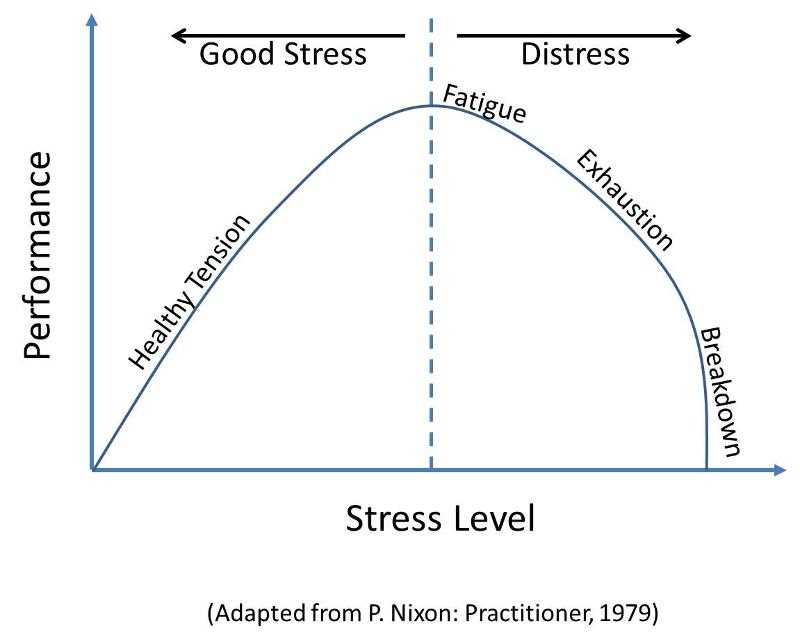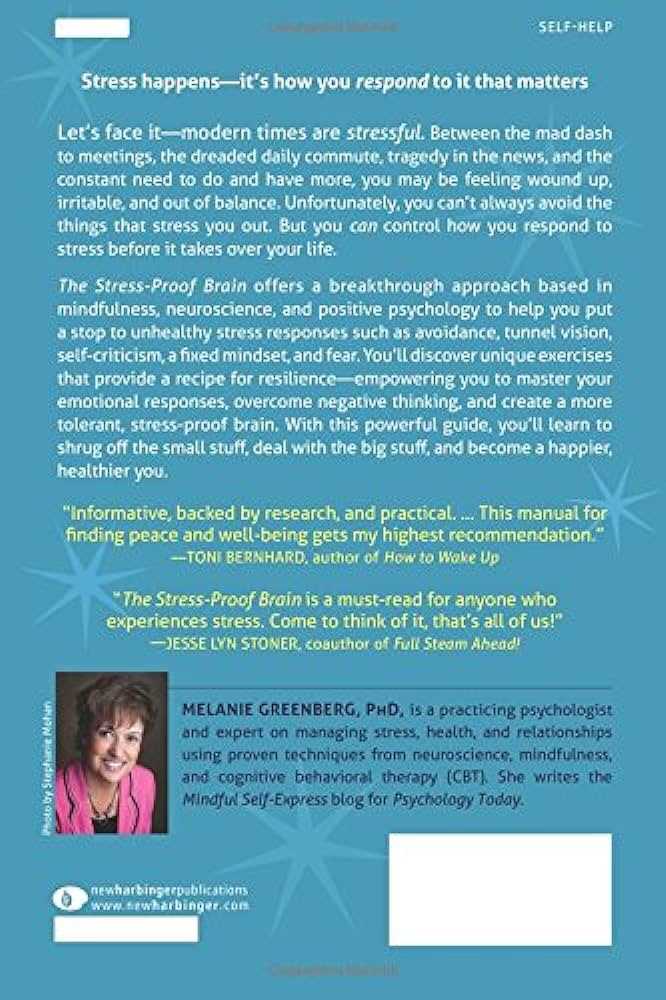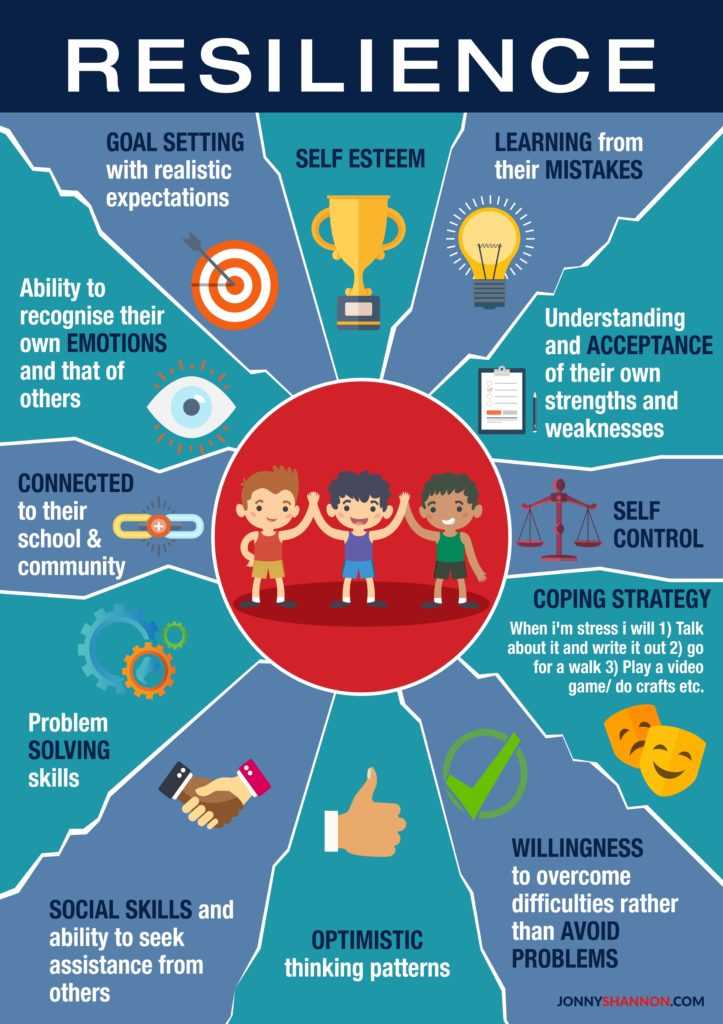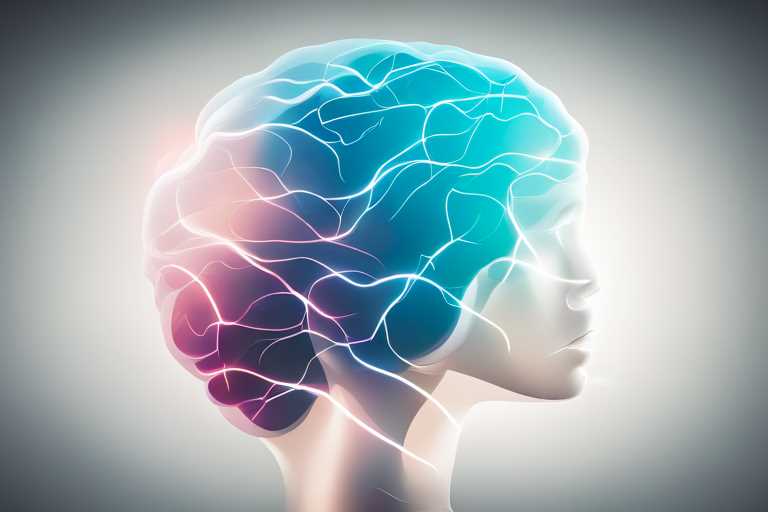
As we age, stress can take a toll on our mental and physical well-being. The brain, in particular, can be greatly affected by the pressures and anxieties that come with later life. However, there are ways to make the brain more resilient to stress and promote overall well-being.
One key aspect of making the brain more resilient to stress is understanding the impact it has on the brain’s functioning. Stress can lead to changes in brain structure and function, affecting memory, cognition, and emotional regulation. By recognizing these effects, individuals can take proactive steps to mitigate the negative impact of stress on the brain.
Experts recommend a multi-faceted approach to building brain resilience. This includes practicing stress-reducing techniques such as mindfulness meditation and deep breathing exercises. These techniques can help calm the mind and body, reducing the physiological response to stress and promoting a sense of relaxation.
In addition to stress reduction techniques, maintaining a healthy lifestyle is crucial for brain resilience. Regular exercise, a balanced diet, and sufficient sleep are all essential for optimal brain function. Exercise, in particular, has been shown to have a positive impact on brain health, promoting the growth of new neurons and enhancing cognitive abilities.
Furthermore, engaging in activities that stimulate the brain, such as puzzles, reading, and learning new skills, can help build resilience. These activities challenge the brain, promoting neuroplasticity and enhancing cognitive function. By keeping the brain active and engaged, individuals can better cope with the effects of stress and maintain mental well-being in later life.
Making the Brain More Resilient to Stress in Later Life

As we age, the brain becomes more susceptible to the negative effects of stress. However, there are steps we can take to make the brain more resilient and better able to handle the challenges of later life.
One of the first steps in making the brain more resilient to stress is to prioritize self-care. This includes getting enough sleep, eating a healthy diet, and engaging in regular exercise. These activities help to reduce the impact of stress on the brain and promote overall brain health.
Another important strategy is to cultivate a positive mindset. Research has shown that individuals who have a positive outlook on life are better able to cope with stress and are less likely to experience negative effects on their brain health. This can be achieved through practicing gratitude, engaging in activities that bring joy and fulfillment, and surrounding oneself with positive and supportive people.
In addition, it is important to engage in activities that stimulate the brain and promote cognitive health. This can include activities such as reading, puzzles, learning a new skill or hobby, and socializing with others. These activities help to keep the brain active and resilient, and can also provide a sense of purpose and fulfillment in later life.
Managing stress is also crucial in making the brain more resilient. This can be done through techniques such as deep breathing exercises, meditation, mindfulness, and engaging in activities that promote relaxation and stress reduction. By managing stress effectively, we can help to protect the brain from the negative effects of chronic stress.
Finally, it is important to seek support when needed. Talking to a trusted friend, family member, or professional can provide valuable support and guidance in navigating the challenges of later life. Additionally, joining support groups or engaging in therapy can provide a safe space to process emotions and develop coping strategies.
In conclusion, making the brain more resilient to stress in later life is possible through prioritizing self-care, cultivating a positive mindset, engaging in activities that stimulate the brain, managing stress effectively, and seeking support when needed. By implementing these strategies, we can promote brain health and enhance our ability to thrive in later life.
Understanding the Impact of Stress on the Aging Brain
Making the brain more resilient to stress in later life is an important goal for maintaining cognitive health. Stress can have a significant impact on the aging brain, affecting memory, decision-making, and overall brain function.
As we age, our brains become more vulnerable to the effects of stress. Chronic stress can lead to the release of stress hormones, such as cortisol, which can damage brain cells and impair cognitive function. This can result in difficulties with memory, attention, and problem-solving.
In addition to these cognitive effects, stress can also have a negative impact on the physical health of the brain. It can contribute to the development of conditions such as Alzheimer’s disease and other forms of dementia. Chronic stress has been linked to an increased risk of cognitive decline and the acceleration of age-related brain changes.
Understanding the impact of stress on the aging brain is crucial for developing strategies to promote brain health and resilience. Research has shown that certain lifestyle factors, such as exercise, social engagement, and relaxation techniques, can help mitigate the effects of stress on the brain.
Exercise has been found to reduce stress levels and promote the growth of new brain cells. Engaging in regular physical activity can help improve cognitive function and protect against age-related cognitive decline. Social engagement and maintaining strong social connections have also been shown to have a positive impact on brain health and resilience to stress.
Practicing relaxation techniques, such as meditation or deep breathing exercises, can help reduce stress and promote a sense of calm. These techniques can help regulate stress hormone levels and improve overall brain function.
In conclusion, stress can have a significant impact on the aging brain, affecting cognitive function and increasing the risk of age-related brain changes. However, by understanding the impact of stress and implementing strategies to promote brain health, it is possible to make the brain more resilient to stress in later life.
The Link Between Stress and Cognitive Decline
Stress has a profound impact on the brain, particularly as we age. Research has shown that chronic stress can contribute to cognitive decline later in life. The brain is a complex organ that is highly sensitive to stress, and prolonged exposure to stress hormones can have detrimental effects on its function.
One way that stress can affect the brain is by impairing the formation and retrieval of memories. Chronic stress can disrupt the communication between brain cells, making it more difficult for the brain to create new memories and recall existing ones. This can lead to problems with learning, attention, and overall cognitive function.
In addition to affecting memory, stress can also have a negative impact on other cognitive abilities, such as problem-solving and decision-making. When the brain is under stress, it tends to rely more on instinctive, automatic responses rather than thoughtful, reasoned ones. This can lead to impulsive behavior and poor decision-making.
Furthermore, chronic stress can also contribute to the development of certain neurodegenerative diseases, such as Alzheimer’s disease. The exact mechanisms behind this link are still not fully understood, but it is believed that stress may accelerate the progression of these diseases by damaging brain cells and promoting the accumulation of harmful proteins.
Fortunately, there are strategies and techniques that can help make the brain more resilient to stress. Engaging in regular physical exercise, practicing mindfulness and meditation, and maintaining a healthy lifestyle can all help reduce the impact of stress on the brain. Additionally, seeking support from friends, family, or a therapist can provide valuable emotional support and help individuals better cope with stress.
| Stress | Cognitive Decline |
| Impairing the formation and retrieval of memories | Problems with learning, attention, and overall cognitive function |
| Negative impact on problem-solving and decision-making | Impulsive behavior and poor decision-making |
| Contribute to the development of neurodegenerative diseases | Accelerate the progression of Alzheimer’s disease |
The Role of Chronic Stress in Accelerating Brain Aging
Chronic stress has been found to have a profound impact on the aging process of the brain. Research has shown that individuals who experience high levels of stress over a prolonged period of time may be at a higher risk for accelerated brain aging.
Stress can have detrimental effects on the brain in a variety of ways. One of the main ways that chronic stress impacts the brain is through the release of stress hormones, such as cortisol. When the brain is exposed to high levels of cortisol for an extended period, it can lead to damage to the hippocampus, a region of the brain that plays a crucial role in memory and learning.
Additionally, chronic stress can also lead to inflammation in the brain. Inflammation is the body’s natural response to stress, but when it becomes chronic, it can have detrimental effects on brain health. Inflammation has been linked to a variety of brain disorders, including Alzheimer’s disease and dementia.
Furthermore, chronic stress can also disrupt the balance of neurotransmitters in the brain. Neurotransmitters are chemicals that help to transmit signals between nerve cells in the brain. When this balance is disrupted, it can lead to problems with mood regulation, memory, and cognitive function.
It is important to note that not all stress is bad for the brain. In fact, some degree of stress can actually be beneficial, as it can help to improve focus and performance. However, chronic stress, which is characterized by long-term exposure to stressors, can have detrimental effects on brain health.
Making the brain more resilient to stress in later life is crucial for maintaining cognitive function and overall brain health. Strategies such as practicing mindfulness, engaging in regular exercise, getting enough sleep, and seeking social support can all help to reduce the impact of chronic stress on the brain.
Overall, chronic stress can have a significant impact on the aging process of the brain. By understanding the role of chronic stress in accelerating brain aging, individuals can take steps to protect their brain health and promote resilience to stress later in life.
Expert Tips for Reducing Stress and Promoting Brain Resilience
Stress is a common part of life, but it can have a negative impact on our brain health, especially as we get older. Fortunately, there are steps we can take to reduce stress and promote brain resilience. Here are some expert tips to help:
- Practice mindfulness: Taking time each day to focus on the present moment can help reduce stress and improve brain function. Mindfulness techniques, such as deep breathing and meditation, can be effective tools for managing stress.
- Stay physically active: Regular exercise not only helps to reduce stress, but it also promotes the growth of new brain cells. Aim for at least 30 minutes of moderate-intensity exercise most days of the week.
- Get enough sleep: Lack of sleep can increase stress levels and negatively impact brain function. Make sure to prioritize sleep and establish a regular sleep routine to ensure you are getting enough rest.
- Connect with others: Social support is crucial for reducing stress and promoting brain resilience. Make an effort to maintain strong relationships with friends and family, and seek out opportunities to connect with others through community groups or volunteering.
- Manage your time: Feeling overwhelmed and stressed can be a result of poor time management. Prioritize tasks, set realistic goals, and break larger tasks into smaller, more manageable steps to reduce stress and increase productivity.
- Take breaks: It’s important to give your brain and body time to rest and recharge. Schedule regular breaks throughout the day to engage in activities you enjoy, such as reading, listening to music, or going for a walk.
- Practice self-care: Taking care of yourself is essential for reducing stress and promoting brain resilience. Engage in activities that bring you joy and relaxation, such as hobbies, taking baths, or practicing self-reflection.
By implementing these expert tips, you can reduce stress and make your brain more resilient, even in later life. Remember, it’s never too late to start taking care of your brain health!
Engaging in Regular Physical Exercise
Regular physical exercise has been shown to have numerous benefits for the brain, especially in later life. Exercise not only helps to keep the brain more resilient to stress, but it also promotes the growth of new brain cells and strengthens existing neural connections.
When we engage in physical activity, our bodies release endorphins, which are natural mood-boosting chemicals. These endorphins help to reduce stress and improve our overall well-being. By engaging in regular exercise, we can better manage stress and prevent it from negatively affecting our brain health.
Additionally, physical exercise increases blood flow to the brain, providing it with the necessary oxygen and nutrients for optimal functioning. This increased blood flow can enhance cognitive abilities, such as memory and attention, and improve overall brain health.
There are many ways to incorporate regular physical exercise into your daily routine. You can choose activities that you enjoy, such as walking, swimming, dancing, or playing a sport. Aim for at least 30 minutes of moderate-intensity exercise most days of the week.
It’s important to start slowly and gradually increase the intensity and duration of your workouts. Listen to your body and don’t push yourself too hard, especially if you haven’t been active for a while. Remember that consistency is key, so try to make exercise a regular part of your routine.
In conclusion, engaging in regular physical exercise is a powerful way to make the brain more resilient to stress, especially in later life. By incorporating exercise into your daily routine, you can improve your overall brain health and well-being.
Practicing Mindfulness and Meditation

Stress can have a significant impact on our well-being, making it essential to find ways to reduce and manage it. One effective strategy is practicing mindfulness and meditation. These techniques can help make the brain more resilient to stress, especially in later life.
Mindfulness involves being fully present in the moment, paying attention to our thoughts, feelings, and sensations without judgment. By practicing mindfulness, we can develop a greater awareness of our stress triggers and learn to respond to them in a more positive and calm manner.
Meditation, on the other hand, is a practice that involves focusing the mind and eliminating the stream of thoughts. It can help reduce stress by promoting relaxation and inner peace. Regular meditation can also improve cognitive function, memory, and attention span, making the brain more resilient to stress in later life.
There are various ways to incorporate mindfulness and meditation into your daily routine. You can start by setting aside a few minutes each day to sit quietly and focus on your breath. Pay attention to the sensations of your breath entering and leaving your body, allowing yourself to let go of any tension or stress.
Another technique is body scan meditation, where you systematically bring your attention to different parts of your body, noticing any sensations or areas of tension. This practice can help you become more aware of how stress manifests physically and allow you to release any tension or discomfort.
Guided meditations and mindfulness apps can also be helpful tools for practicing mindfulness and meditation. These resources provide guided instructions and can be accessed anytime, anywhere, making it easier to incorporate these practices into your daily life.
By making mindfulness and meditation a regular part of your routine, you can strengthen your brain’s resilience to stress and improve your overall well-being. These practices can help you cultivate a sense of calm, reduce anxiety, and enhance your ability to cope with the challenges that come with later life.
Building a Strong Social Support System
Stress can have a significant impact on the brain, making it more vulnerable to later-life challenges. One effective way to combat this is by building a strong social support system.
Having a network of supportive friends and family members can provide a buffer against stress, helping to protect the brain and promote resilience. These relationships can offer emotional support, practical assistance, and a sense of belonging.
When faced with stressful situations, having someone to talk to and lean on can make a world of difference. Sharing your thoughts and feelings with a trusted friend or loved one can help to reduce stress levels and provide a fresh perspective on challenging situations.
It’s important to cultivate and maintain these relationships throughout life. Making time for social activities and staying connected with loved ones can help to strengthen your support system. This could involve joining social clubs or organizations, participating in group activities, or simply reaching out to friends and family for regular catch-ups.
Additionally, it’s crucial to be a supportive presence in the lives of others. By offering a listening ear, lending a helping hand, or providing encouragement, you can strengthen your relationships and build a reciprocal support system.
Building a strong social support system takes time and effort, but the benefits are well worth it. By investing in these relationships, you can make your brain more resilient to stress in later life and enhance your overall well-being.
Strategies for Enhancing Cognitive Function and Emotional Well-being
Resilience is key when it comes to managing stress in later life. By making the brain more resilient, individuals can better cope with the challenges that come their way. Here are some strategies that can help enhance cognitive function and emotional well-being:
- Engage in regular physical exercise: Physical exercise has been shown to have numerous benefits for the brain. It can improve cognitive function, enhance mood, and reduce stress levels. Aim for at least 30 minutes of moderate-intensity exercise most days of the week.
- Practice mindfulness and relaxation techniques: Mindfulness and relaxation techniques, such as meditation and deep breathing exercises, can help reduce stress and promote emotional well-being. Incorporate these practices into your daily routine to reap their benefits.
- Maintain a healthy diet: A nutritious diet can support brain health and cognitive function. Include foods rich in antioxidants, omega-3 fatty acids, and vitamins B, C, and E. Limit the consumption of processed foods and sugary snacks.
- Get enough sleep: Sleep is essential for cognitive function and emotional well-being. Aim for 7-9 hours of quality sleep each night. Establish a bedtime routine and create a sleep-friendly environment to improve the quality of your sleep.
- Stay socially connected: Social connections are crucial for emotional well-being. Engage in activities that allow you to connect with others, such as joining clubs or volunteering. Maintain relationships with friends and family members and seek support when needed.
- Challenge your brain: Keep your brain active and engaged by participating in activities that stimulate cognitive function. This can include puzzles, reading, learning a new skill or language, or engaging in hobbies that require mental focus.
- Manage stress effectively: Stress is a part of life, but managing it effectively is essential for resilience. Find healthy coping mechanisms that work for you, such as journaling, talking to a trusted friend, or seeking professional help if needed.
By implementing these strategies, individuals can enhance their cognitive function and emotional well-being, making the brain more resilient to stress in later life.
Adopting a Healthy Diet and Lifestyle

Stress can have a significant impact on the brain, but adopting a healthy diet and lifestyle can help make it more resilient to stress later in life.
Eating a balanced diet that includes plenty of fruits, vegetables, whole grains, and lean proteins can provide the nutrients and antioxidants necessary for brain health. Avoiding processed foods, sugary snacks, and excessive alcohol can also help reduce inflammation and oxidative stress in the brain.
In addition to a healthy diet, regular exercise is crucial for maintaining brain health and resilience to stress. Exercise increases blood flow to the brain, promotes the growth of new neurons, and releases endorphins, which can improve mood and reduce stress levels.
Getting enough sleep is another important aspect of a healthy lifestyle. Chronic sleep deprivation can have a negative impact on brain function and increase susceptibility to stress. Aim for 7-9 hours of quality sleep each night to support optimal brain health.
Managing stress through relaxation techniques such as meditation, deep breathing exercises, and yoga can also help improve brain resilience. These practices can activate the body’s relaxation response, reducing stress hormones and promoting a sense of calm and well-being.
Finally, staying socially connected and engaged in meaningful activities can contribute to brain health. Maintaining strong relationships, participating in hobbies and interests, and challenging the brain through puzzles and cognitive exercises can all help build resilience to stress and promote overall brain health.
| Key Points: |
|---|
| – Adopting a healthy diet and lifestyle can make the brain more resilient to stress later in life. |
| – Eating a balanced diet, exercising regularly, getting enough sleep, managing stress, and staying socially connected are all important for brain health. |
| – Avoid processed foods, sugary snacks, and excessive alcohol to reduce inflammation and oxidative stress in the brain. |
| – Exercise increases blood flow to the brain, promotes the growth of new neurons, and releases endorphins, which can improve mood and reduce stress levels. |
| – Aim for 7-9 hours of quality sleep each night to support optimal brain health. |
| – Relaxation techniques such as meditation, deep breathing exercises, and yoga can activate the body’s relaxation response and reduce stress hormones. |
| – Staying socially connected and engaged in meaningful activities can contribute to brain health and resilience to stress. |
Stimulating the Brain with Cognitive Activities
As we age, it becomes even more important to engage in cognitive activities that can help make the brain more resilient to stress. By challenging the brain with activities that require mental effort and stimulation, we can enhance its ability to cope with stress and maintain cognitive function later in life.
One way to stimulate the brain is through puzzles and problem-solving activities. These activities can help improve cognitive skills such as memory, attention, and problem-solving abilities. Sudoku, crossword puzzles, and brain teasers are all great options to keep the brain active and engaged.
Another effective way to stimulate the brain is through learning new skills or hobbies. Engaging in activities such as learning a musical instrument, painting, or taking up a new language can help create new neural connections in the brain, improving its overall resilience to stress.
Furthermore, staying socially active and maintaining strong social connections can also have a positive impact on brain health. Engaging in social activities, such as joining clubs or volunteering, can provide mental and emotional stimulation, reducing the negative effects of stress on the brain.
It’s important to remember that the brain is a muscle, and like any muscle, it needs regular exercise to stay strong and resilient. By engaging in cognitive activities, we can help protect and enhance our brain health, making it more resilient to stress in later life.

I am Patrina de Silva, a psychologist and mental health blogger in Sri Lanka. After obtaining psychology degrees from the University of Colombo and Monash University, I returned home to work as a counselor while also starting the popular blog “Pressy but Happy” to provide advice on psychological issues. Over the past decade, my empathetic articles have made my blog a leading mental health resource in the country. In addition to writing, I maintain a private therapy practice, frequently volunteer counseling time, and conduct seminars, driven by my passion for destigmatizing mental illness and educating the public on the mind-body connection. I strive to be an influential voice in my field through my compassionate approach.
